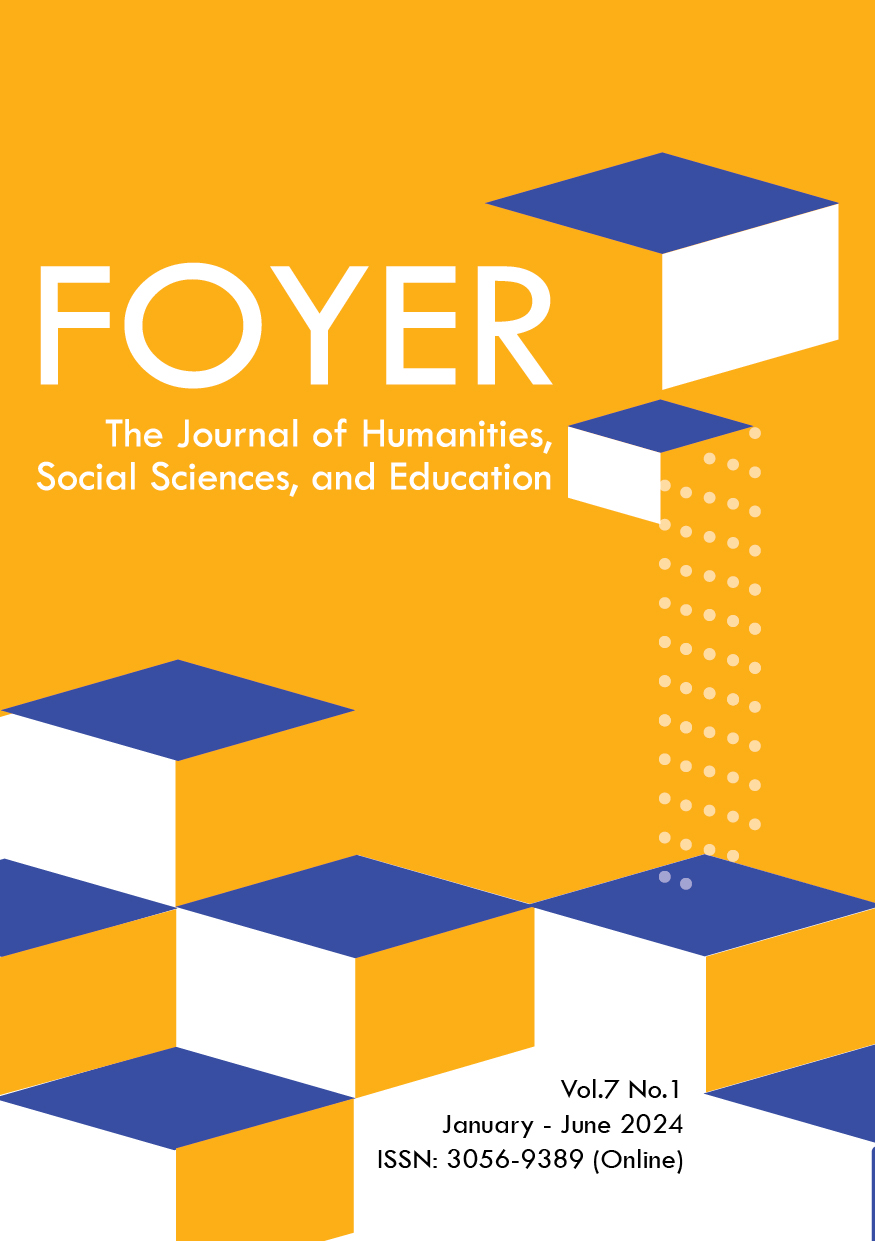Speech Acts of Gratitude in Thai: A Case Study of Acknowledgments in Thai language department theses
Keywords:
Speech acts of gratitude, Acknowledgments, Language strategiesAbstract
This article aims to investigate the language strategies in Thai researchers’ expressions of gratitude. Data were collected from thesis acknowledgments texts in Thai from three educational institutions: Chulalongkorn University, Kasetsart University and Thammasat University. Each institution yielded ten texts, for a total of 30 texts. Searle’s (1969) conditions for gratitude speech acts were used to analyze them. The results showed that there were two main types of strategies employed. Direct strategies were exhibited through the use of six gratitude words. These were arranged in order of frequency from highest to lowest, “khɔ̆:+kràbkhɔ̀bkhun” “khɔ̆:+khɔ̀bkhun” “khɔ̆:+khɔ̀bphrákhun” “khɔ̀bkhun” “kràb khɔ̀bkhun” and “khɔ̀bphrákhun”. The second strategy found was the use of indirect gratitude strategies. Five sub-strategies were discovered: giving compliments, strategies for demonstrating success, strategies to repay a debt of gratitude, strategies regarding hypothetical situations, and making promises. The strategies of giving compliments were divided into two sub-strategies: direct strategies and the strategy of using metaphors to give compliments. From comparing the gratitude strategies, it appeared that direct gratitude strategies were used more than indirect gratitude strategies. This was because acknowledgments are an announcement of gratitude in honor of those who helped with the thesis. Using direct gratitude words is therefore an appropriate strategy. The results of the study reflect how Thai society places importance on gratitude through Buddhist concepts and that the relationship between the sender and receiver is an important variable in choosing words to express gratitude.
References
Jaisue, R. (2005). The speech act of complaining in Thai: a case study of university students. (Master of Arts Thesis, Chulalongkorn University).
Loem, S., & Payago, P. S. D. (2019). An approach for promoting Kataññukatavedi in Thai society. Journal of MCU Peace Studies, 7(2), 424-434.
Makthavornvattana, T. (1998). The speech act of apologizing in Thai. (Master of Arts Thesis, Chulalongkorn University).
Panpothong, N. (2012). Teaching documents for course 2201783 Thai language analysis according to pragmatics principles (revised edition). Department of Thai Language Faculty of Arts Chulalongkorn University. reproduce.
Patcharatmora, J. (2001). A study of making apologies in Thai by speakers of different social status. (Master of Arts Thesis, Chulalongkorn University).
Piasilo (Tharin), P. S. (2020). Worship: Identity of Thai societies. Journal of Graduate MCU Khonkaen Campus, 7(1), 95-112.
Ploykhao, S. (2008). The act of complaining on the webboard. (Master of Arts Thesis, Chulalongkorn University).
Roungtheera, T. (2010). Acknowledgement in theses written in French by Thai graduate students: A generic structure and socio-cultural aspects. Journal of Kasetsart Science Social science field, 31(2), 153-165.
Royal Institute. (1999). Royal institute dictionary B.E. 2542. Nammeebooks.
Searle, J. R. (1969). Speech acts: An essay in the philosophy of language. Cambridge, Cambridge University.
Sripunvoraskul, R. (2019). An interlanguage pragmatic study of the speech act of disagreement by Chinese learners of Thai: a case study of Chinese students from Yunnan and Guangxi provinces. (Master of Arts Thesis, Chulalongkorn University).
Sripunvoraskul, R. (2019). An interlanguage pragmatic study of the speech act of complaining: A case study of Chinese learners of Thai. Journal of Language and Linguistics, 40(2), 89-114.
Taepun, N. (2017). Saying thank you is more than you think smarter life by psychology. https://smarterlifebypsychology.com/2017/08/18/
Vatcharasuwan, P. (2004). The act of disagreeing in Thai by speaker of different social status: the case of teachers and students. (Master of Arts Thesis, Chulalongkorn University).
Wongthai, N. (2020). Language and meaning. K.C. Interpress Printing House.
Xu, J., & Ruan, Y. (2017). A comparative study on Chinese acknowledgements in arts/science dissertations. Journal of Hubei Radio & Television University, 37(04), 34-38.
Yi, Q. (2008). A study on the speech acts of gratitude in Chinese and Spanish. Journal of Mudanjiang Normal University, (01), 63-66.
Downloads
Published
How to Cite
Issue
Section
License

This work is licensed under a Creative Commons Attribution-NonCommercial-NoDerivatives 4.0 International License.




